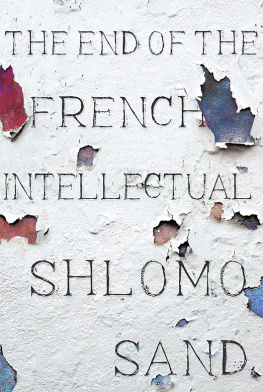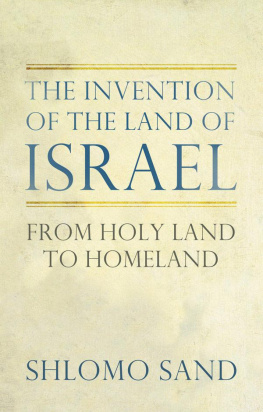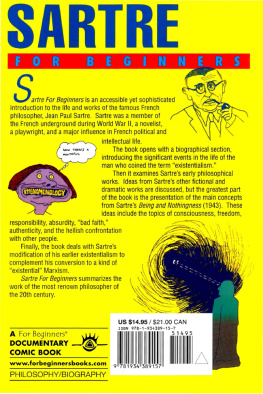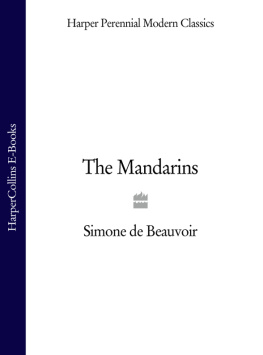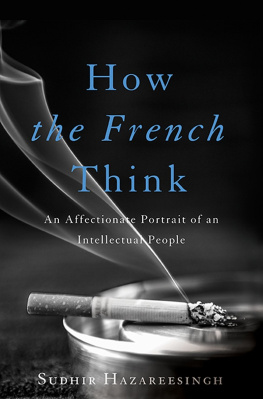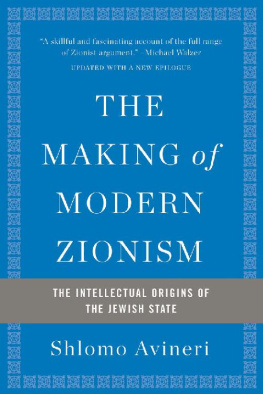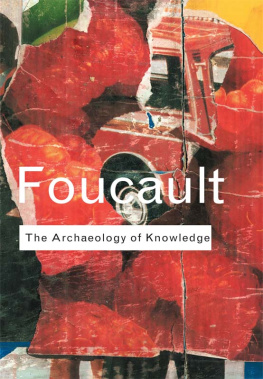Shlomo Sand - The End of the French Intellectual: From Zola to Houellebecq
Here you can read online Shlomo Sand - The End of the French Intellectual: From Zola to Houellebecq full text of the book (entire story) in english for free. Download pdf and epub, get meaning, cover and reviews about this ebook. year: 2018, publisher: Verso, genre: Science. Description of the work, (preface) as well as reviews are available. Best literature library LitArk.com created for fans of good reading and offers a wide selection of genres:
Romance novel
Science fiction
Adventure
Detective
Science
History
Home and family
Prose
Art
Politics
Computer
Non-fiction
Religion
Business
Children
Humor
Choose a favorite category and find really read worthwhile books. Enjoy immersion in the world of imagination, feel the emotions of the characters or learn something new for yourself, make an fascinating discovery.
- Book:The End of the French Intellectual: From Zola to Houellebecq
- Author:
- Publisher:Verso
- Genre:
- Year:2018
- Rating:4 / 5
- Favourites:Add to favourites
- Your mark:
The End of the French Intellectual: From Zola to Houellebecq: summary, description and annotation
We offer to read an annotation, description, summary or preface (depends on what the author of the book "The End of the French Intellectual: From Zola to Houellebecq" wrote himself). If you haven't found the necessary information about the book — write in the comments, we will try to find it.
The best-selling author of The Invention of the Jewish People, Shlomo Sand examines the troublesome figure of the French intellectual. Revered throughout the Francophile world, Frances tradition of public intellectual engagement stems from Voltaire and Zola and runs through Sartre and Foucault to the present day. The intellectual enjoys a status as the ethical lodestar of his nations life, but, as Sand shows, the recent history of these esteemed figures shows how often, and how profoundly, they have fallen short of the ideal.
Sand examines Sartre and de Beauvoirs unsettling accommodations during the Nazi occupation and then shows how Muslims have replaced Jews as the nations scapegoats for a new generation of public intellectuals, including Michel Houellebecq and Alain Finkielkraut. Possessing an intimate knowledge of the Parisian intellectual milieu, Sand laments the degradation of a literary elite, but questions the value of that class at the best of times.
Drawing parallels between the Dreyfus Affair and Charlie Hebdo, while mixing reminiscence with analysis, Sand casts a characteristically candid and mordant gaze upon the intellectual scene of today.
Shlomo Sand: author's other books
Who wrote The End of the French Intellectual: From Zola to Houellebecq? Find out the surname, the name of the author of the book and a list of all author's works by series.

